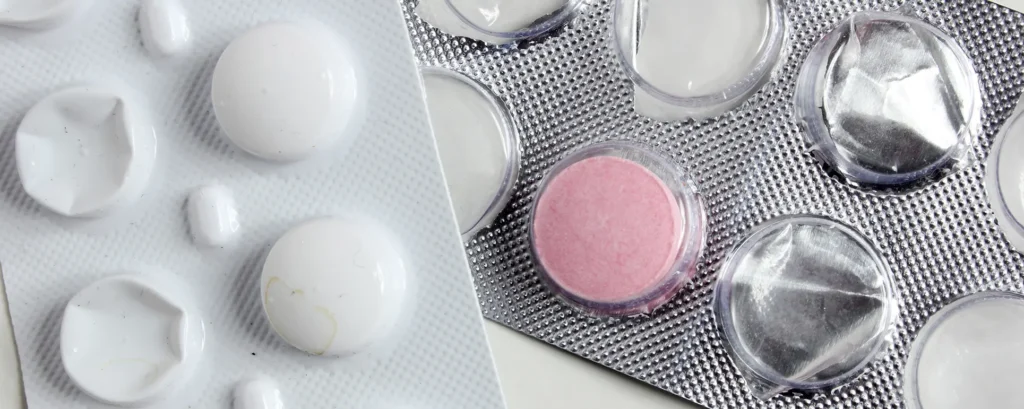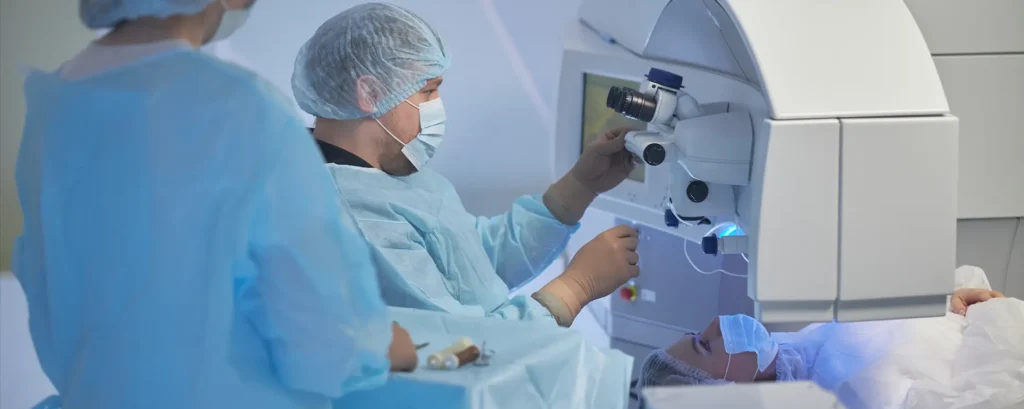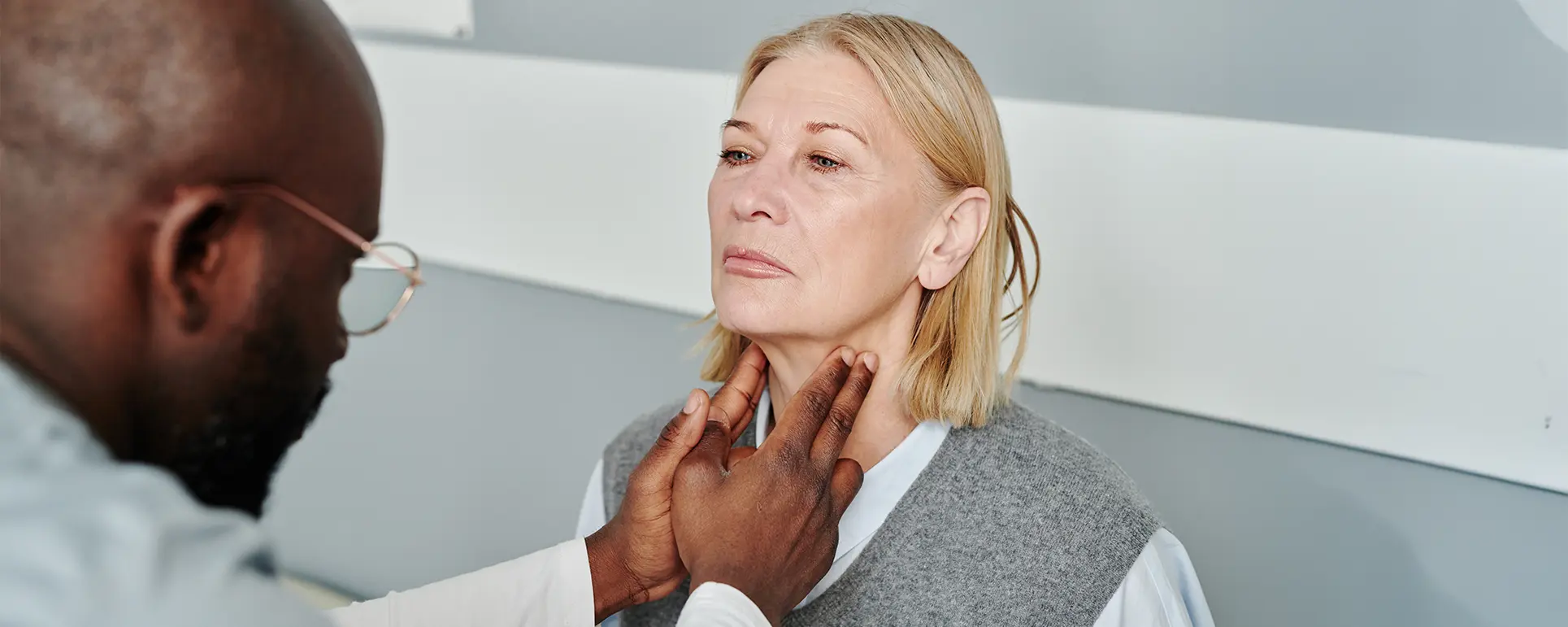If you’ve been diagnosed with Hashimoto’s disease and your eye specialist has recommended cataract surgery, it’s normal to have a lot of questions. This isn’t just a routine eye procedure for you — your autoimmune thyroid condition can influence how your body responds before, during, and after surgery. That doesn’t mean you can’t have a successful outcome, but it does mean your medical team should plan things a little differently to keep everything as safe and smooth as possible.
In this guide, we’ll go through how cataract surgery is approached for people with Hashimoto’s, the extra checks your surgical team may run, how your medication fits into the picture, what anaesthetic considerations might come into play, and the recovery tips that can make a big difference. The goal is to help you feel informed and prepared, so you can go into surgery with confidence.
Understanding Hashimoto’s Disease
Hashimoto’s disease, also known as Hashimoto’s thyroiditis, is an autoimmune condition where your immune system mistakenly attacks your thyroid gland. Over time, this can lead to hypothyroidism — a state where the thyroid doesn’t produce enough hormones to keep your metabolism running efficiently. Symptoms can range from fatigue and weight gain to muscle weakness, brain fog, and sensitivity to cold.
The relevance for cataract surgery is that these hormonal imbalances can affect your body’s healing ability, influence your energy levels, and alter your response to certain anaesthetics. In addition, autoimmune conditions can sometimes come with other health considerations, like joint stiffness or dry eyes, that might need to be factored into your surgical plan.
Why Hashimoto’s Matters in Cataract Surgery

If your thyroid hormones are out of balance at the time of surgery, your body may not cope as well with the stress of the procedure. Even though cataract surgery is typically quick and low-risk, it still places demands on your immune system and healing processes. Hypothyroidism can make recovery slower, while hyperthyroidism (if your medication dose is too high) can increase your risk of irregular heart rhythms during anaesthesia.
Another reason Hashimoto’s matters is that it sometimes occurs alongside other autoimmune disorders, like coeliac disease, vitiligo, or rheumatoid arthritis. Your surgeon will want to know if you have any of these, as they could influence medication choices or post-operative care. Ultimately, having Hashimoto’s just means your care needs to be a little more personalised — and that’s entirely manageable with the right preparation.
Pre-Surgery Assessment for Hashimoto’s Patients
Before cataract surgery, you’ll typically have a pre-operative assessment that includes a review of your general health, current medications, and any relevant blood test results. For someone with Hashimoto’s, this may involve checking your thyroid function (TSH, T4, and possibly T3 levels) to make sure you’re in a stable range. If your levels are off, your GP or endocrinologist might adjust your levothyroxine dose before surgery.
Your surgeon will also want to know about any symptoms you’ve been experiencing recently. Even mild fatigue, muscle weakness, or temperature sensitivity can influence how your body handles surgery and recovery. It’s also important to mention if you’ve had any recent flare-ups or changes in your medication, as this can guide anaesthetic planning and post-operative monitoring.
Medication Management Before Cataract Surgery

The main medication for Hashimoto’s is levothyroxine (synthetic T4). In most cases, you’ll continue taking it right up to the day of surgery — stopping it could cause unnecessary hormonal fluctuations. Your surgical team will usually schedule your procedure for a time that fits your normal medication routine, so you don’t miss a dose.
If you take any other medications for associated autoimmune conditions or unrelated health issues, these will also be reviewed. Some drugs, such as blood thinners or certain anti-inflammatories, may need to be adjusted before surgery. Always bring a complete medication list to your pre-operative appointment, including supplements and herbal remedies, as some can interact with anaesthetics or affect healing.
Anaesthetic Considerations for People with Hashimoto’s
Cataract surgery is usually done under local anaesthesia, with eye drops or an injection to numb the area around your eye. For patients with Hashimoto’s, the main concern is how your thyroid status might affect your body’s response. If you are hypothyroid, you may be more sensitive to sedatives, meaning you could feel drowsier for longer afterwards. If you’re hyperthyroid, there’s a higher risk of heart rhythm changes under sedation.
Your anaesthetist will want to know your latest thyroid function results and any relevant symptoms. They may opt for the lightest level of sedation possible, or even none at all if you’re comfortable, to reduce the risk of side effects. This tailored approach helps keep your surgery safe and your recovery smooth.
Intraoperative Monitoring and Safety
During cataract surgery, your vital signs (such as blood pressure, oxygen levels, and heart rate) will be monitored continuously. For someone with Hashimoto’s, there may be extra attention paid to keeping your body temperature stable, as hypothyroidism can make you more sensitive to cold. This might mean using warming blankets or keeping the operating room slightly warmer.
Your surgical team may also take steps to minimise stress on your cardiovascular system. This could involve slower, more controlled administration of sedation, or careful adjustment of positioning during the procedure to avoid discomfort or strain on joints — especially if you have stiffness from hypothyroidism.
Post-Surgery Recovery and Healing
After surgery, your recovery will follow a similar pattern to anyone else’s, but with a few Hashimoto’s-specific considerations. If your thyroid levels are well controlled, your healing should progress normally. However, if you’re slightly hypothyroid, you may find that your energy levels are lower than expected in the first week, and your eyes may feel a bit more dry or irritated.
It’s important to follow your surgeon’s instructions about using prescribed eye drops, avoiding rubbing your eyes, and not lifting heavy objects for a short period. If you have joint stiffness or muscle weakness, arranging your home environment in advance — so you can easily reach items without stretching or bending — can make recovery more comfortable.
The Role of Thyroid Health in Surgical Outcomes

Keeping your thyroid hormones in a healthy range isn’t just about feeling better in everyday life — it directly affects surgical outcomes. Well-balanced thyroid function supports healthy circulation, efficient wound healing, and better tolerance of anaesthetic drugs. On the flip side, poorly controlled thyroid disease can increase the risk of complications, including prolonged recovery, infection, and, in rare cases, cardiovascular issues.
For this reason, many eye surgeons will work closely with your GP or endocrinologist before scheduling surgery. If your thyroid function tests show any significant imbalances, they may delay the procedure until your medication is adjusted. This might feel frustrating in the short term, but it’s a worthwhile step for your safety.
Practical Recovery Tips for Hashimoto’s Patients
- Plan rest periods: Even if cataract surgery is quick, your body will need energy for healing. Schedule time off work and avoid strenuous activity for at least a few days.
- Stay on top of medication: Take your levothyroxine as prescribed, and don’t skip doses — stable thyroid levels help your eyes heal faster.
- Eat a balanced diet: Focus on nutrient-rich foods with adequate protein, vitamins, and minerals to support immune function.
- Manage dry eye: Hashimoto’s can increase the risk of dry eye symptoms. Using preservative-free lubricating drops can help keep your eyes comfortable during recovery.
- Keep follow-up appointments: Regular post-surgery checks help your surgeon spot any issues early.
Working with a Multidisciplinary Team
One of the best ways to ensure a smooth cataract surgery journey with Hashimoto’s is to have your care coordinated between your eye surgeon, GP, and endocrinologist. This team approach means any medication adjustments can be made promptly, anaesthetic plans can be tailored to your needs, and post-operative care can be adapted to your energy levels and healing speed.
Good communication is key — make sure each specialist knows you have Hashimoto’s, and keep them updated on any new symptoms. With everyone on the same page, your surgery is far more likely to go smoothly and deliver the clear vision you’re hoping for.
FAQs About Cataract Surgery and Hashimoto’s Disease
1. Can I have cataract surgery if my Hashimoto’s isn’t fully controlled yet?
You can, but most surgeons will strongly recommend getting your thyroid levels as stable as possible before proceeding. If your thyroid hormones are too low (hypothyroidism), you may have a slower metabolism, reduced healing ability, and increased sensitivity to anaesthetics. If they’re too high (hyperthyroidism), there’s a greater risk of irregular heart rhythms or higher blood pressure during the procedure. Stabilising your condition before surgery not only reduces these risks but also makes your recovery more predictable and comfortable.
2. Will I need to stop taking levothyroxine before surgery?
In nearly all cases, you should continue taking levothyroxine as prescribed. This medication is vital for keeping your thyroid function balanced, which in turn supports your body’s healing processes after cataract surgery. Stopping suddenly can trigger hormonal fluctuations that may cause fatigue, mood changes, and a slower recovery. Your anaesthetist will work your procedure schedule around your usual dosing routine, so you can keep your hormone levels steady throughout the surgical period.
3. Does Hashimoto’s increase the risk of cataracts forming?
There is no clear evidence that Hashimoto’s directly causes cataracts, but chronic hypothyroidism may contribute to metabolic and oxidative changes in the eye’s lens over time. These changes could, in theory, make cataracts develop slightly earlier, especially if combined with other risk factors like ageing, diabetes, or long-term steroid use. However, for most people with Hashimoto’s, cataracts develop for the same reasons they do in the general population.
4. Are there any special eye drops I’ll need after surgery?
You’ll almost certainly receive antibiotic and anti-inflammatory drops following surgery, which are standard for all patients. However, because Hashimoto’s is linked with a higher likelihood of dry eye syndrome, your surgeon may suggest adding preservative-free lubricating drops into your recovery plan. These can help keep the surface of your eye comfortable, protect against irritation, and support a smooth healing process during the first few weeks after your operation.
5. Will Hashimoto’s make my vision heal slower after surgery?
If your thyroid function is well balanced, your visual recovery should be very similar to someone without Hashimoto’s. However, if your hormones are underactive at the time of surgery, you might notice that your eyes take a little longer to settle and that fatigue lingers for longer than expected. Staying consistent with your medication, following your aftercare instructions, and getting enough rest can all help minimise any delays in healing and visual improvement.
6. Can Hashimoto’s affect my choice of lens implant?
Hashimoto’s itself usually doesn’t limit your choice of intraocular lens (IOL). That said, your surgeon will still consider your overall eye health, lifestyle needs, and any other autoimmune conditions you might have before making a recommendation. For example, if you also have dry eyes or ocular surface disease, they might choose a lens type that offers maximum clarity while minimising glare and halos, to help ensure your comfort and long-term satisfaction.
7. Should I have extra blood tests before surgery?
It’s a good idea for people with Hashimoto’s to have their thyroid function checked before surgery, even if they’ve been stable for some time. This helps ensure your hormone levels are in a healthy range and alerts your medical team to any adjustments that may be needed. Your pre-operative assessment may also include standard health checks, such as a complete blood count and, in some cases, ECG monitoring, to make sure you’re fit for anaesthesia and surgery.
8. How soon can I return to normal activities after surgery?
Most cataract surgery patients can return to light daily activities, such as walking and reading, within 24–48 hours. With Hashimoto’s, it’s worth factoring in a little extra recovery time, especially if fatigue is a regular symptom for you. You should still avoid heavy lifting, strenuous exercise, and swimming for at least a week, or until your surgeon gives the all-clear, to protect your healing eye and reduce the risk of complications.
9. Is there a higher chance of infection if I have Hashimoto’s?
Hashimoto’s itself does not directly increase your infection risk. However, if you’re hypothyroid, your immune system may be slightly slower to respond to bacteria or viruses, meaning any infection could take longer to resolve. This makes following your post-operative instructions even more important — using your prescribed antibiotic drops as directed, keeping your hands clean before touching your eye area, and attending follow-up appointments are all key ways to protect your recovery.
10. Can stress from surgery trigger a flare-up of my Hashimoto’s symptoms?
Yes, it’s possible. Surgery, even a minor procedure like cataract removal, places a certain amount of physical stress on the body, and this can sometimes make autoimmune symptoms more noticeable in the days that follow. You might feel more tired than usual or notice a temporary increase in sensitivity to cold. Managing stress with relaxation techniques, getting plenty of rest, and keeping your thyroid medication consistent will help your body settle back into balance more quickly.
Final Thoughts
Hashimoto’s disease doesn’t have to be a barrier to successful cataract surgery. The main takeaway is that preparation and communication are everything. By ensuring your thyroid levels are stable, your medications are managed correctly, and your surgical team understands your specific needs, you can approach your procedure with confidence.
At London Cataract Centre, we regularly treat patients with autoimmune conditions like Hashimoto’s and know how to adapt our approach for the safest, most comfortable experience possible. If you have concerns about your upcoming surgery, our team is here to answer your questions and guide you every step of the way.
References
- Bahn, R.S., Burch, H.B., Cooper, D.S., Garber, J.R., Greenlee, M.C., Klein, I., Laurberg, P., McDougall, I.R., Montori, V.M., Rivkees, S.A. and Ross, D.S., 2011. Hyperthyroidism and other causes of thyrotoxicosis: management guidelines of the American Thyroid Association and American Association of Clinical Endocrinologists. Thyroid, 21(6), pp.593–646. Available at: https://www.liebertpub.com/doi/10.1089/thy.2010.0417
- Bhatia, P., Arora, S., Singh, P.M. and Ghosh, S., 2014. Anaesthetic management of patients with thyroid disease: A review. Indian Journal of Endocrinology and Metabolism, 18(5), pp.667–672. Available at: https://www.ncbi.nlm.nih.gov/pmc/articles/PMC5467203/
- National Institute for Health and Care Excellence (NICE), 2023. Cataracts in adults: management. [online] Available at: https://www.nice.org.uk/guidance/ng77
- Chaker, L., Bianco, A.C., Jonklaas, J. and Peeters, R.P., 2017. Hypothyroidism. The Lancet, 390(10101), pp.1550–1562. Available at: https://www.sciencedirect.com/science/article/pii/S0140673617307031

